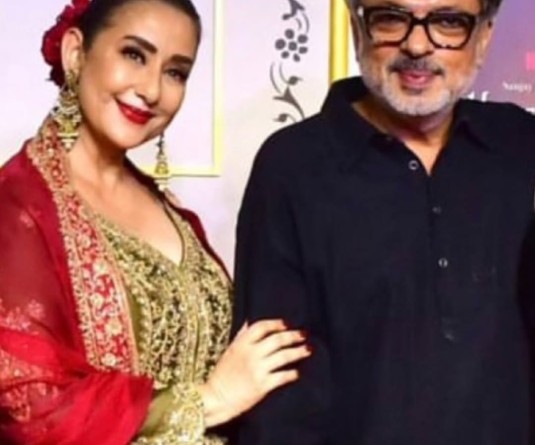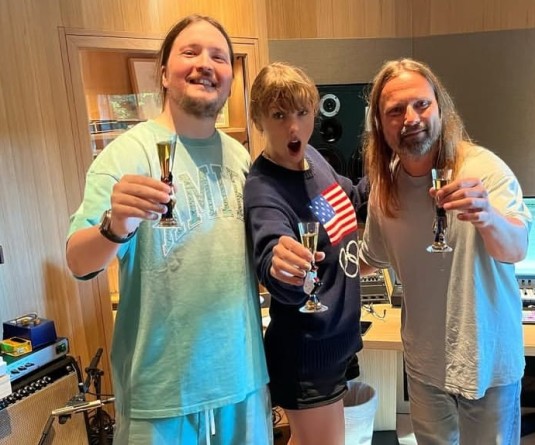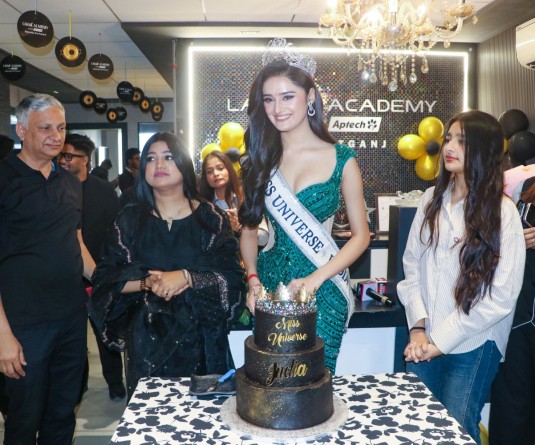Abu Metha, Advisor to Chief Minister of Nagaland, Nilanjan Bhattacharya, documentary filmmaker, artist & writer and Thejavituo Rio, a writer and director from Nagaland during the panel discussion on “Frames & Pages: Storytelling across Cinema and Literature” as part of the White Owl Literature Festival and Book Fair on February 19.

Morung Express News
Chümoukedima | February 20
“You can’t really separate indigenous food as food because every part of life is connected. Forest is connected. Nature is connected. Culture is connected. Your everyday is connected,” remarked Nilanjan Bhattacharya, a documentary filmmaker, artist, writer and a scavenger of knowledge from Kolkata, who has for the last fifteen years explored indigenous knowledge on biodiversity and food in India and produced several films and installations on this topic.
He was one of the speakers along with Thejavituo Rio, a writer and director from Nagaland whose films have been showcased at Oscar and BAFTA-qualifying festivals, for a panel titled, “Frames & Pages: Storytelling across Cinema and Literature” held as part of the White Owl Literature Festival and Book Fair on February 19. The session, which was moderated by Abu Metha, Advisor to the Chief Minister of Nagaland and Chairman of the Investment & Development Authority of Nagaland (IDAN), explored their journeys in storytelling through the medium of films.
In drawing that connection of traditional food being related to its natural surrounding and the belief system, Nilanjan Bhattacharya said, “it’s a process for me to also understand that like this complex structure which has been flowing for many years, that knowledge system, which is very nature friendly, is very sustainable.”
With proven benefits in this regard, he stated that his works also talk about its various aspects in terms of health benefits, and also protecting nature, he expressed that, “it’s an eye opener whenever I screen it because people, and it sometimes surprises me that we know so little about indigenous food.”
Impressing upon the filmmaker to do a food journey in Nagaland, Abu Metha highlighted that each Naga tribe has different food and specialties wherein the story of each dish goes centuries back. “There are so many stories to tell about Naga food. And our Naga stories are written also in our food”, he put across.
‘Storytelling, a powerful tool’
For Thejavituo Rio, “storytelling has long been the most powerful tool in preserving history, shaping cultures, and exploring the human condition” even while maintaining that storytelling is also at the core of literature.
During the course of the conversation, he also spoke about his childhood and recalled that his brother, who was also his only sibling, passed away when he was six years old. “And so most of my childhood, I was raised alone. And that meant that I had to entertain myself. And I got into writing very, very early on,” he shared.
The first thing he put pen to paper was rap, even while realising that something about hip-hop gave him so much freedom. Subsequently, he started writing songs and then transitioned into writing stories and eventually ended up writing screenplays.
Once I started writing scripts, he recalled, “I became possessive with what I was writing down. And I didn’t want someone else to translate my vision to the screen. And that’s how I stumbled my way into directing.”
Rio said that he further went on to consistently churn out scripts after scripts. “And the more I did that, I think the more I found myself. So, it’s not just a process of discovering what films you want to make, but I think it runs parallel to self-discovery,” he related.
Noting that the Naga journey is so different from other states in India, Abu Metha expressed, “I look to young people like you to tell the world Naga stories. We have a political journey. We have an aspiration. Our society has gone through so much challenges, turmoil, instability, violence, insurgency and it’s still not complete. We still have not reached the desired destination we would want to reach. But I feel that the new generation need to tell positive stories, real truths, and hard facts.”
As a closing remark, Nilanjan Bhattacharya expressed, “keep your curiosity alive. Look around and try to find out stories all around you. And then there are many stories.”






